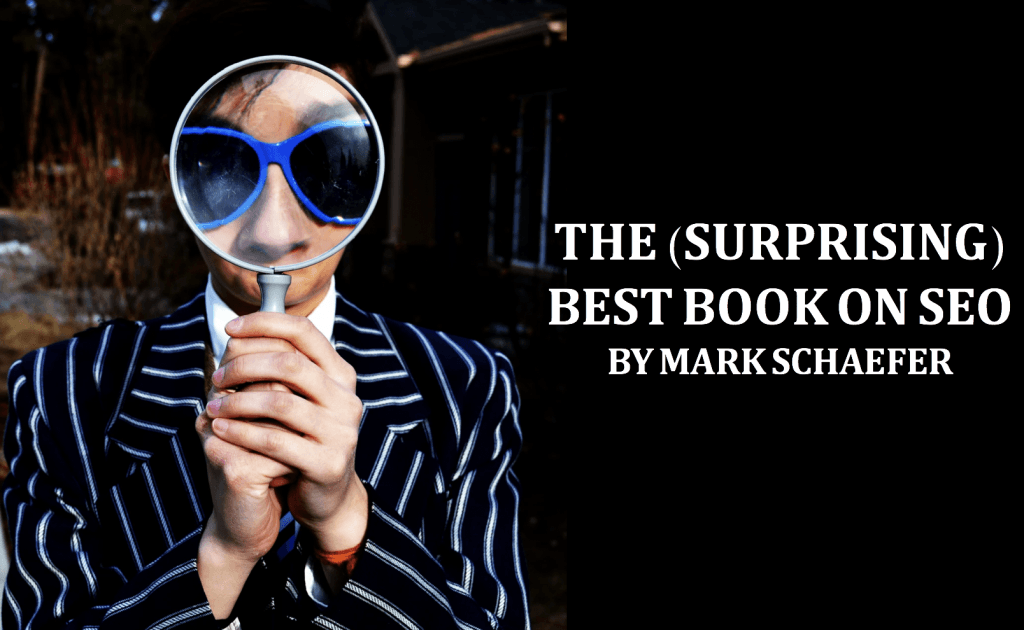
I have written about my loathing for arbitrary rankings and especially these “influencer lists.” But every once in while I see a list that captures my attention … and last week provided an extraordinary surprise — the best SEO book!
Book Authority just named my work, The Content Code,
The thing that is remarkable about the award is that I never thought of my book as an SEO book — it’s not even listed in that category on Amazon.
But it does make sense. And the success of the book goes back to a controversial decision I made about SEO for my business and my blogging career 10 years ago. I’d like to discuss that decision today and why it might be relevant for you, too.
Why SEO sucked
Before I dissect this lesson, let me thank BookAuthority for this honor. The site uses a proprietary, independent methodology to identify and rate the best nonfiction books in an objective and data-based manner. They are not associated with any publisher or commercial venture. So … good job with that, and thank you.
Now back to our regularly scheduled programming:
In 2008, social media and content was just coming into the mainstream as marketing ideas. Google was dominating the search space and everybody was trying to figure out how to win those coveted first spaces on the organic results … including me.
I’ll never forget attending an early SEO conference and learning about all the dirty “black-hat” tricks that were going on back then. One guy stood up and talked about how he was hiring shut-ins to pose as other people posting content to try to get links back to customer sites.
I asked him, “Isn’t this patently unethical?”
He responded: “Yes. But big companies are willing to pay me millions of dollars to this and if I don’t do it, they’ll find somebody else who will.”
And he wasn’t kidding. His client list included some Fortune 500 companies.
As I learned about the SEO business, even the “white hat” shops seemed to be dabbling in some gray areas when it came to ethics, links, and content. I made a decision that I would never, ever fall into that trap. I did not want to be associated with anything this slimy. I was either going to make it or fail, but I wasn’t going to play these gray-area SEO games and tricks.
Best SEO book!
I thought, “There is NO WAY Google can let these guys win. If they are going to survive as a company, they can’t let the bad guys rule the organic results. Google has to reward the best, purest, most helpful content in the long-run.”
And so, I engaged in none of the weird SEO strategies of the day. This might sound like a rational and enlightened plan today, but believe me, it was unnerving going down a path by yourself. Literally, I watched the whole industry going a different direction, so my plan was radical at the time and there was no certain success.
But, I was right.
Month by month and year by year, Google changed their algorithm to beat back the link merchants. Every change they made moved the industry closer to what I had been practicing all along, and something I wrote about in my very first blog posts 10 years ago. The key to winning in the digital world is:
- Creating meaningful content
- Engaging with a relevant audience
- Being authentically helpful
To me, this wasn’t SEO, it was common sense. But today — finally! — SEO is starting to look more like common sense than a secretive black market for links.
In this era, SEO is content marketing, more or less. There is still some horse-trading for links going on but eventually Google will find a way to punish those people too.
The next step in SEO
Today, my SEO strategy is essentially the same as it was 10 years ago: focus on content that is extremely useful and interesting to my audience. I use the Yoast WordPress plug-in to try to make my posts more discoverable. My website also gets a little TLC from my friend Douglas Karr, who I have hired to fix the things that break. Let’s be honest. Websites are mysteries.
If I could go back in time, I would have added a fourth bullet point to my original list of three rules of success, and it would be this: Ignite your content.
Ten years ago when I wrote that original advice, any sort of content on the web was a novelty. It didn’t take much to build an audience for a blog, podcast, or video channel. Today, it is insanely hard to accomplish that. There’s just too much stuff.
The economic value of content that is not seen and shared is zero. How do we get our content to IGNITE throughout our audience, and beyond?
A few years ago, I tackled that issue in The Content Code. The book is not just the evolution of content marketing, it truly is the evolution of SEO, too.
So yeah. maybe it is the best SEO book … and it all started with an unconventional approach to blogging 10 years ago. It was an unnerving risk at the time, but it has been the best path for me and my customers and I hope you’ll also discover this truth in The Content Code.
Follow Mark on Twitter, LinkedIn, YouTube, and Instagram.
Illustration courtesy Unsplash